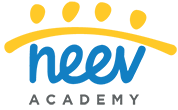Monday January 20th, 2014
The children of Grade 1 are inquiring into "The origin of products and the process the products go through before we use them" To experience the cycle for one important food group, wheat to flour, bread, biscuits, etc - the children followed the link from the grocery store to manufacturing of the different raw materials and finished products. Ofcourse its opening up questions to more finished products and whether they can make them – How can ‘we’ make bread from flour? we’ll see where that goes! As the 5th unit of the year wears on, the children will move towards understanding how the relative positions of the sun, moon and earth become part of this cycle creating seasons leading to seasonality of materials and products available that they use. Children have the space to question the origin of food and other things they use, leading to a personal desire to inquire and learn deeply, with their teachers just being facilitators in the research.
The children of Grade 1 are inquiring into "The origin of products and the process the products go through before we use them" To experience the cycle for one important food group, wheat to flour, bread, biscuits, etc - the children followed the link from the grocery store to manufacturing of the different raw materials and finished products. Ofcourse its opening up questions to more finished products and whether they can make them – How can ‘we’ make bread from flour? we’ll see where that goes! As the 5th unit of the year wears on, the children will move towards understanding how the relative positions of the sun, moon and earth become part of this cycle creating seasons leading to seasonality of materials and products available that they use. Children have the space to question the origin of food and other things they use, leading to a personal desire to inquire and learn deeply, with their teachers just being facilitators in the research.
 |
| Illustration of the observation of the process of one of the products they run into in their daily lives |
Why contextual learning?
We often wonder – when the amount
of information in textbooks is not so much – why do children seem to need so
much of an effort or push to grasp it and then recall it? It boils down to
motivation. More than 2 millenia have passed since Confucius’ observation – I
hear and I forget, I see and I remember, I do and I understand. The goal
contextual learning is: focus on understanding the world around, on
understanding it, on applying skills learned to everything that has meaning to
us, or to transfer learning from familiar things to new things through the
application of the same concepts. Inquiring and understanding about what they
see/ experience, build on everything they have seen, are wondering about, and
will continue to see around them. – either as a targeted observation or even
through everyday life - which then leads to continuous learning through
building an ability to question. The environment is truly the best teacher – we
just need to take the time to build serious learning around what we see. With
early childhood this is much easier, but with primary age children – math
concepts, science, geography, history, and higher language skills kick in,
making contextual learning more challenging. But it's the only way primary aged
children learn best – when they learn in response to their own questions, and
are motivated for new learning. As they become older, approaching middle school
– their questioning and critical thinking skills are completely alive – and
ready for more abstract ‘text book learning’!

No comments:
Post a Comment